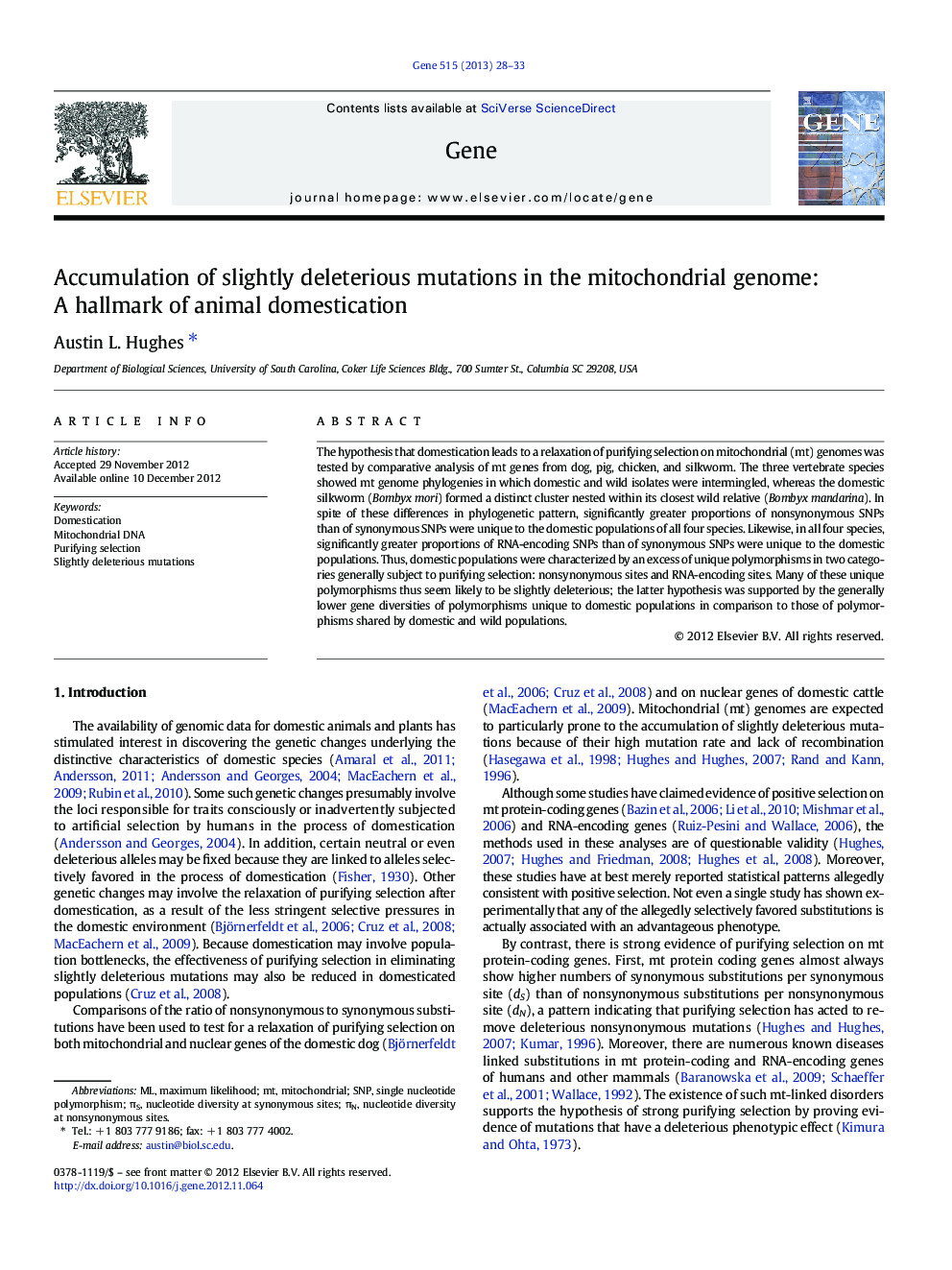| Article ID | Journal | Published Year | Pages | File Type |
|---|---|---|---|---|
| 2817302 | Gene | 2013 | 6 Pages |
The hypothesis that domestication leads to a relaxation of purifying selection on mitochondrial (mt) genomes was tested by comparative analysis of mt genes from dog, pig, chicken, and silkworm. The three vertebrate species showed mt genome phylogenies in which domestic and wild isolates were intermingled, whereas the domestic silkworm (Bombyx mori) formed a distinct cluster nested within its closest wild relative (Bombyx mandarina). In spite of these differences in phylogenetic pattern, significantly greater proportions of nonsynonymous SNPs than of synonymous SNPs were unique to the domestic populations of all four species. Likewise, in all four species, significantly greater proportions of RNA-encoding SNPs than of synonymous SNPs were unique to the domestic populations. Thus, domestic populations were characterized by an excess of unique polymorphisms in two categories generally subject to purifying selection: nonsynonymous sites and RNA-encoding sites. Many of these unique polymorphisms thus seem likely to be slightly deleterious; the latter hypothesis was supported by the generally lower gene diversities of polymorphisms unique to domestic populations in comparison to those of polymorphisms shared by domestic and wild populations.
► Domestic and wild animals differ in the pattern of mitochondrial DNA variation. ► Domestic species show evidence of an excess of slightly deleterious variants. ► Domestication relaxes purifying selection on animal mitochondrial genomes.
